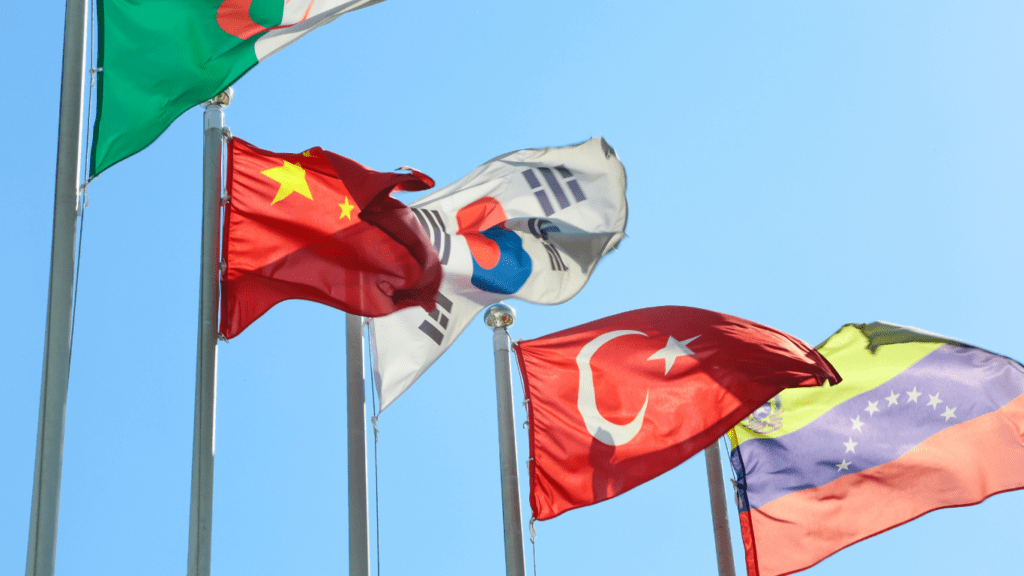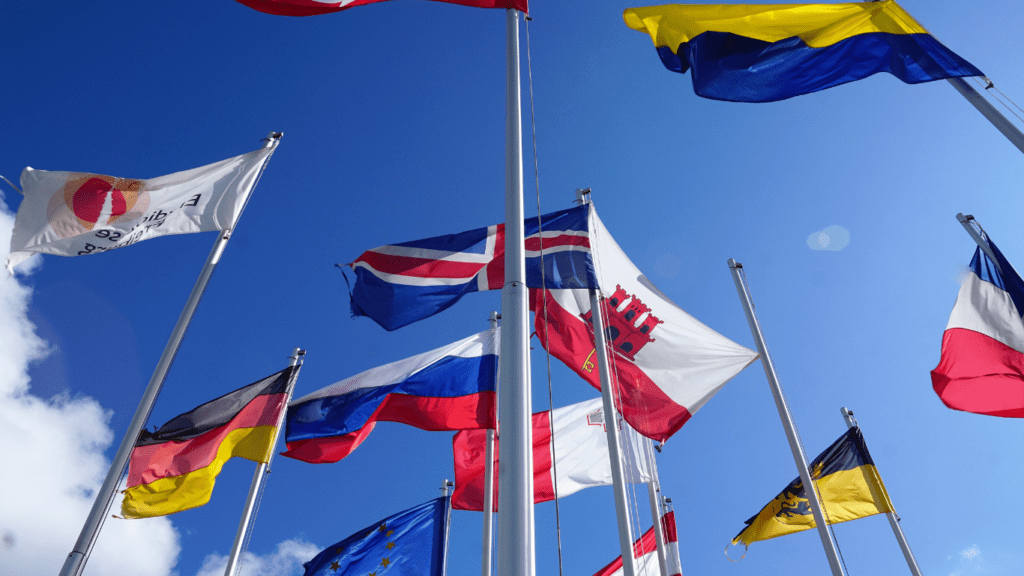As someone deeply immersed in the world of gambling regulations, I’ve witnessed firsthand the dynamic shifts in policies that shape the global gaming landscape. From the bustling casinos of Las Vegas to the online platforms reaching players worldwide, the regulatory frameworks governing gambling are in a constant state of evolution.
In this article, I’ll delve into the intricate web of gambling regulatory changes happening across different countries and continents. Exploring the diverse approaches taken by governments to regulate gambling activities offers a fascinating glimpse into the intersection of law, economics, and social behavior.
Whether it’s the legalization of online betting in one jurisdiction or the tightening of restrictions in another, the regulatory updates reverberate through the entire industry. Join me as we navigate through the maze of gambling regulations worldwide, uncovering the trends and implications that define this ever-evolving sector.
Evolution of Gambling Regulations
Gambling regulations have evolved significantly, expanding from a focus on physical establishments to the complex world of online platforms. The internet and technology-driven innovations like esports betting and cryptocurrency casinos have challenged traditional laws, necessitating new frameworks to address cross-border transactions and player protection.
Further advancements, such as mobile apps and social casinos, have blurred the lines between gambling and gaming, pushing regulators to define categories for skill-based and chance-based games. To balance growth and consumer safety, regulatory bodies are increasingly adopting adaptable laws that can keep pace with an ever-evolving industry.
Impact of Globalization on Gambling Laws
Globalization has significantly influenced gambling laws worldwide. Let’s delve into how international trade agreements have impacted these regulations.
Effects of International Trade Agreements
International trade agreements have played a pivotal role in shaping gambling laws across borders. By fostering economic collaboration and harmonization, these agreements have created opportunities for cross-border gambling activities. As countries engage in trade partnerships, they often align their regulatory frameworks to facilitate smoother cooperation in the gambling industry.
Harmonization of Standards
One notable effect of international trade agreements is the harmonization of standards in gambling regulations. Countries involved in trade agreements may work towards standardizing their legal requirements for gambling operators, promoting a level playing field and enhancing regulatory clarity.
This harmonization process aims to reduce discrepancies among nations, foster fair competition, and improve consumer protection measures across different jurisdictions.
Cross-Border Licensing
International trade agreements have also led to the expansion of cross-border licensing for gambling operators. Through mutual recognition mechanisms and agreements on licensing standards, operators can obtain licenses that are recognized in multiple jurisdictions.
This streamlines the licensing process, supports market access across borders, and encourages regulatory cooperation among countries.
Regulatory Cooperation and Information Sharing
In the context of globalization, regulatory cooperation and information sharing have become essential components of effective gambling regulation. International trade agreements often include provisions for sharing best practices, exchanging regulatory insights, and collaborating on enforcement efforts. This exchange of information helps regulatory authorities stay ahead of emerging trends, combat transnational gambling issues, and enhance regulatory effectiveness on a global scale.
Adapting to Technological Advancements
- Adapting Gambling Laws to Technological Advancements: Globalization has driven the need for updated gambling laws to keep pace with innovations in technology. With the rise of online platforms, mobile apps, and digital payments, countries are revising regulations to address both the challenges and opportunities posed by these advancements.
-
Updating Frameworks for Emerging Trends: Regulatory frameworks now increasingly cover new trends such as VR gambling, blockchain casinos, and live dealer games, reflecting the evolving landscape of the global gambling industry.
Regional Variances in Gambling Legislation
Exploring the diverse landscape of gambling regulations, I shed light on the regional differences in legislative frameworks. Across the globe, governments have adopted varying approaches to address the evolving gambling industry, reflecting a nuanced understanding of societal needs and economic dynamics.
North America
In North America, the regulatory landscape varies widely. While some states in the USA have embraced online gambling, others maintain strict prohibitions. In contrast, Canada has a more liberal approach, allowing provinces to regulate both land-based and online gambling activities within their jurisdictions.
Europe
Europe showcases a patchwork of gambling regulations, with some countries like the UK having a well-established licensing system for online operators, ensuring consumer protection and responsible gaming. In contrast, countries like Germany have recently implemented more stringent regulations to curb excessive gambling practices.
Asia Pacific
The Asia Pacific region presents a blend of regulatory models. While countries like Macau boast thriving gambling industries, others like Singapore have stringent laws to prevent excessive gambling. Additionally, the emergence of online platforms in countries like the Philippines has led to a reevaluation of existing regulations to address technological advancements.
Latin America
Latin American countries are increasingly embracing online gambling, recognizing its economic benefits. Nations like Argentina and Brazil are in the process of legalizing online betting, aiming to regulate the industry to promote responsible gaming practices and generate tax revenues.
Africa
In Africa, gambling regulations are in a state of flux. While countries like South Africa have well-established gambling industries, others are in the process of modernizing their regulatory frameworks to cater to the rise of online gambling and technological innovations.
Middle East
The Middle East exhibits a conservative approach towards gambling, with most countries prohibiting all forms of betting. However, some nations like the UAE have shown interest in exploring the potential economic benefits of regulated gambling, signaling potential shifts in the region’s regulatory landscape.
By exploring these regional nuances in gambling legislation, it becomes evident that governments are continuously adapting their regulatory frameworks to balance industry growth with social responsibility and consumer protection.
Emerging Trends in Online Gambling Regulations
Exploring the latest trends in online gambling regulations unveils a dynamic landscape shaped by technological advancements and evolving consumer preferences. Regulatory bodies worldwide are adapting to the digital age, aiming to strike a balance between fostering innovation and ensuring robust consumer protection measures.
Embracing Technological Innovations
Online gambling has witnessed a significant paradigm shift with the proliferation of virtual casinos, esports betting platforms, and the integration of cryptocurrencies. The advent of mobile gaming apps and social casinos has further blurred the lines between traditional gambling activities and digital entertainment avenues.
As a result, regulators face the challenge of updating antiquated laws to address emerging issues like cross-border transactions and safeguarding player interests in this rapidly evolving ecosystem.
Enhancing Consumer Protection
The evolving online gambling landscape necessitates a proactive approach to fortifying consumer protection mechanisms. Regulatory bodies are implementing stringent measures to ensure responsible gaming practices, combat problem gambling, and mitigate the risks associated with online transactions.
This focus on enhancing player safety underscores the industry’s commitment to prioritizing ethical conduct and safeguarding the well-being of individuals engaging in online gambling activities.
Global Harmonization of Regulations
Amidst the interconnected nature of the global gambling industry, there is a growing emphasis on aligning regulatory frameworks across borders. International trade agreements play a pivotal role in influencing the standardization of gambling laws, fostering economic cooperation, and promoting regulatory convergence among countries.
By harmonizing standards and enhancing collaboration, regulatory bodies seek to create a uniform playing field for gambling operators while upholding the principles of fair play, transparency, and regulatory compliance.
Diverse Regional Approaches
The diverse regulatory landscape for online gambling reveals marked regional differences. In the U.S., states like New Jersey and Nevada lead with progressive policies, whereas others maintain restrictions. European nations display varying levels of regulation, with some, like the UK, having well-established frameworks, while others adopt stricter measures. In Asia, Macau’s robust gambling sector contrasts sharply with the largely prohibitive stance across the Middle East. Emerging regions, such as Latin America and Africa, are modernizing their approaches, seeking economic gains and adapting to digital advancements.
This evolving regulatory scene underscores a global shift towards flexible, tech-driven governance. Regulatory bodies are increasingly focused on creating sustainable, consumer-protective environments that allow for innovation while addressing the unique challenges of digital gambling.



 Manueleather Armstrong was the driving force behind the technical development of Star Gamble Legend. With a passion for cutting-edge technology, Manueleather ensured the platform’s seamless functionality and integration of cryptocurrency gambling features. His expertise in web development and commitment to delivering a smooth user experience were crucial in bringing the project to life. Manueleather’s technical prowess and dedication have been vital in establishing Star Gamble Legend as a reliable and innovative resource for gambling enthusiasts worldwide.
Manueleather Armstrong was the driving force behind the technical development of Star Gamble Legend. With a passion for cutting-edge technology, Manueleather ensured the platform’s seamless functionality and integration of cryptocurrency gambling features. His expertise in web development and commitment to delivering a smooth user experience were crucial in bringing the project to life. Manueleather’s technical prowess and dedication have been vital in establishing Star Gamble Legend as a reliable and innovative resource for gambling enthusiasts worldwide.